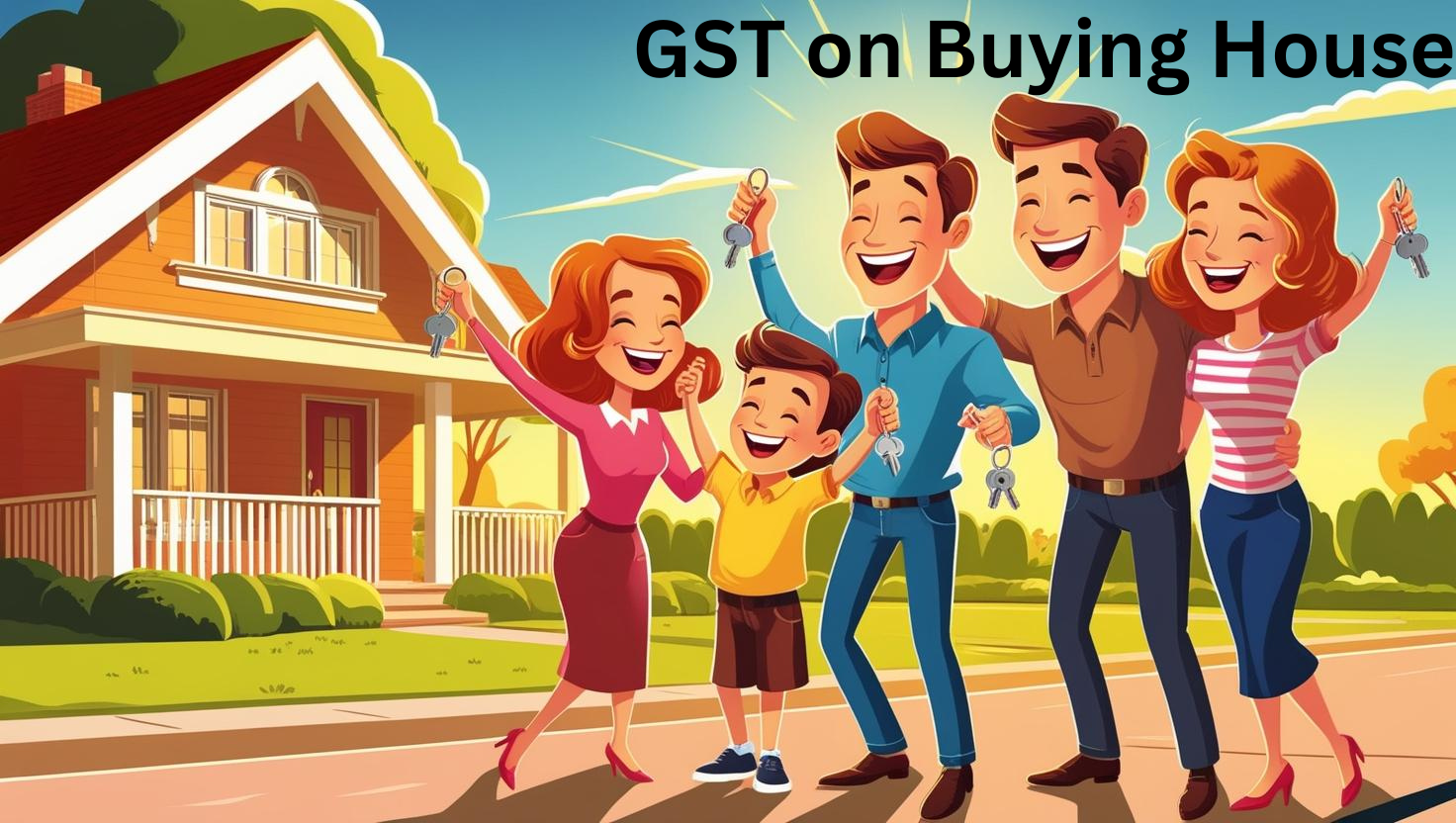GST applies to under-construction properties awaiting a completion certificate or ready for occupancy. Just like buyers, GST benefits developers as well. Before GST, developers were bogged down by a series of taxes–VATs, central excise, entry tax

GST on Residential Property Purchase
GST is applicable only to under-construction or new homes, not to ready-to-move-in properties or land purchases. The GST rate on residential properties varies based on factors like property type (affordable or luxury), construction phase, and property value. Input Tax Credit (ITC) is a crucial component of the GST system. ITC can be claimed with proper documentation, like a tax invoice. For under-construction affordable housing, the GST rate is 1% without ITC and for under-construction luxury housing (non-affordable), the GST rate is 5% without ITC. Ready-to-move-in new flats and land purchases are exempt from GST.
Impact of GST on Residential Property Purchase
The revised lower GST rates (1% and 5%) have encouraged demand for under-construction properties, especially in the affordable housing segment. GST rate changes have not impacted stamp duty and registration fees, which remain unaffected by the new GST rates.
Pre-GST Taxes on Flat Purchases
| Aspect | Pre-GST Structure | Post-GST Structure |
| Tax types | VAT, Excise duty, Service tax | Unified GST (CGST+SGST) |
| Rates for under-construction flats | 4.5% (Service Tax) + VAT (1%–5%, state-dependent) | 1% (affordable) or 5% (non-affordable housing) |
| Ready-to-Move Flats | No Service Tax, only Stamp Duty & Registration Charges | No GST, only Stamp Duty & Registration Charges |
GST Rates on Residential Properties and Flat Purchases
| Type of property | GST Rate (Before April 2019) | GST Rate (After April 2019) |
| Under construction (affordable housing) | 8% with input tax credit | 1% without input tax credit |
Under construction (non-affordable housing)
| 12% with input tax credit | 5% without input tax credit |
| Ready-to-move-in Properties | No GST | No GST |
Input Tax Credit (ITC) on Flat Purchases
Under Section 17(5)(d) of the CGST Act, taxpayers generally cannot claim ITC on GST paid for constructing immovable property for their own use (both commercial and residential). However, recent judgements have introduced some exceptions.
The Supreme Court of India has ruled that if the construction of a property is essential for providing rental or leasing services, it could be considered a “plant.” This exception allows developers to claim ITC for GST paid on construction materials and services. The Court emphasized that this should be assessed case by case using a “functionality test.”
For residential properties, ITC cannot typically be claimed for flats intended for personal use. However, if the property is meant for rental purposes and qualifies under the plant exception, developers may claim ITC.
FAQs
Q1. How GST is Calculated on Flats?
- Start with the Base Price: Begin with the basic cost of the flat before any extras.
- Apply GST on the Base: For under-construction residential properties, GST is usually 5%. For affordable housing, it’s 1%.
- Add in the Extras: Any extra charges like parking, maintenance, or clubhouse fees are also subject to GST, so include these.
- Calculate Total GST: Add up all the GST amounts from the base and extra costs.
- Get the Final Price: Combine the base price, extras, and total GST to know what you’ll be paying in full.
Q2. Is GST applicable on the purchase of a new flat?
Yes, you have to pay GST for new flats. But, it is not applicable to ready-to-move-in flats.
Q3. How is GST calculated on a flat purchase?
GST is calculated as 5% on under-construction flats and 1% on affordable housing, based on the base price and additional costs.
Q4. Is GST levied on resale flats?
No, GST does not apply to resale flats.
